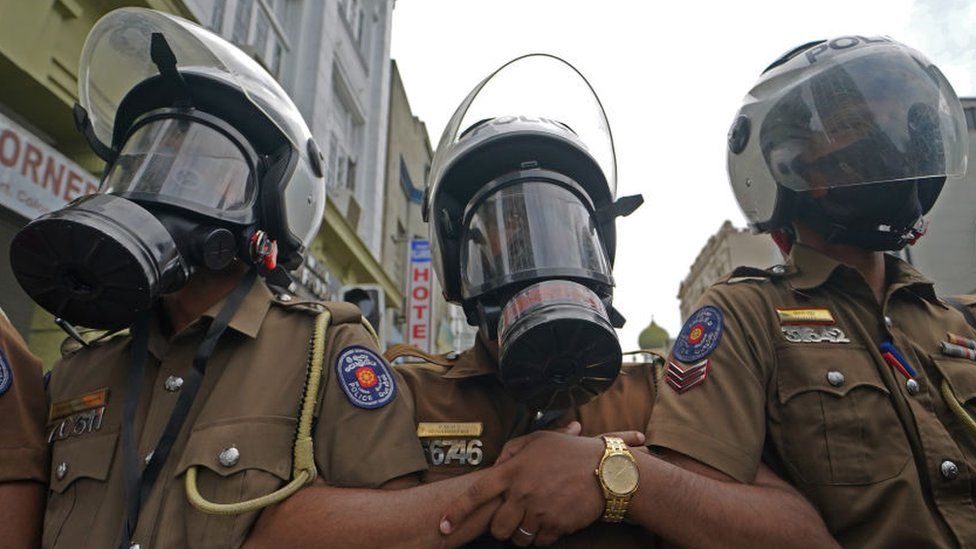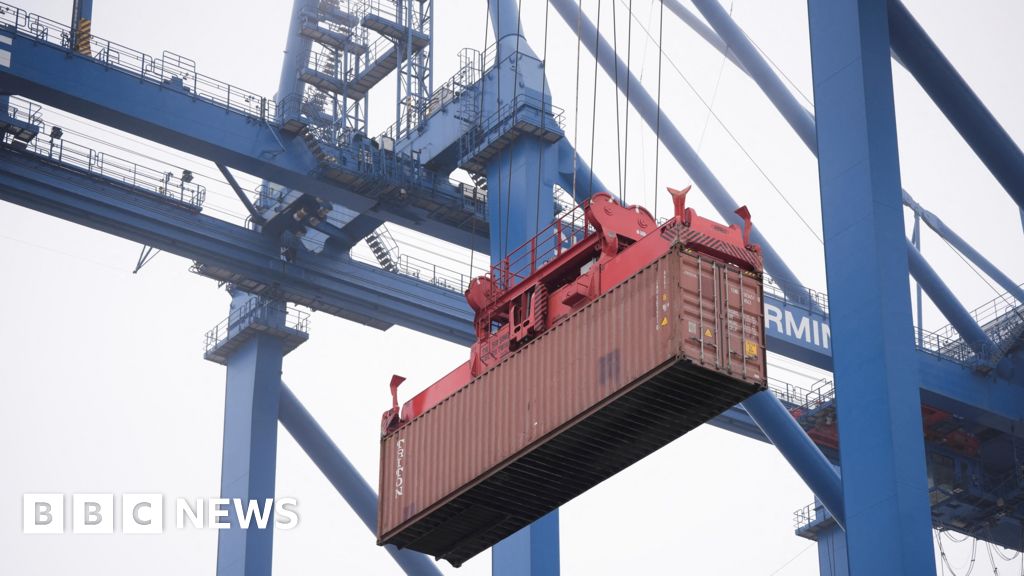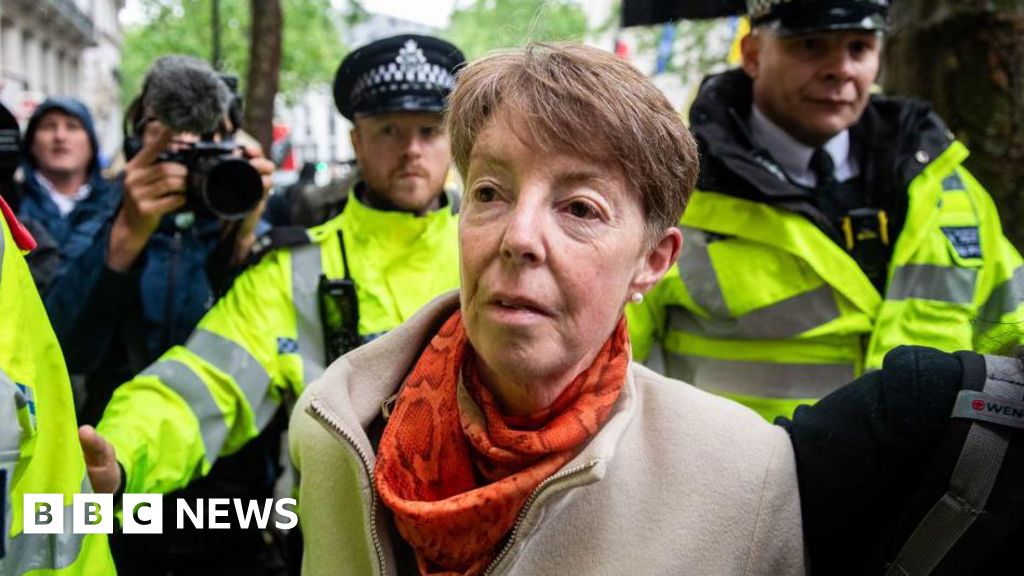ARTICLE AD BOX
By Peter Hoskins
Business reporter
 Image source, Getty Images
Image source, Getty Images
Sri Lankan police during a protest in Colombo on Wednesday
Sri Lanka's president says he has asked Russia's Vladimir Putin to help his cash-strapped nation import fuel, as it faces its worst economic crisis since independence from Britain in 1948.
Gotabaya Rajapaksa said he "had a very productive" discussion with Mr Putin.
It comes after Sri Lanka's energy minister warned at the weekend that the country may soon run out of petrol.
On Wednesday, hundreds of people took to the streets of the capital Colombo to protest against the government.
"I requested an offer of credit support to import fuel," Mr Rajapaksa tweeted in reference to his conversation with the Russian leader.
Mr Rajapaksa also said he had "humbly made a request" for flights between Moscow and Colombo to resume, after the Russian flag carrier Aeroflot suspended services last month in response to a Sri Lankan court briefly detaining one of its planes following a dispute over payment.
"We unanimously agreed that strengthening bilateral relations in sectors such as tourism, trade and culture was paramount in reinforcing the friendship our two nations share," he added.
1/2
Had a very productive telecon with the #Russia President, Vladimir Putin. While thanking him for all the support extended by his gvt to overcome the challenges of the past, I requested an offer of credit support to import fuel to #lka in defeating the current econ challenges.
The BBC is not responsible for the content of external sites.View original tweet on Twitter
The country has already purchased oil from Russia in recent months to help bolster fuel supplies during the crisis, and the government has signalled that it is willing to buy more from the energy-rich country.
Attempts by Mr Rajapaksa to resolve Sri Lanka's worst economic crisis in more than 70 years, including securing financial support from India and China, have so far failed to end weeks of shortages of fuel, power, food and other essential items.
Last week, authorities suspended sales of petrol and diesel for non-essential vehicles in an attempt to preserve its dwindling fuel stocks.
On Wednesday, hundreds of protesters gathered near the parliament building in Colombo as they launched what they called the "final push" to remove Mr Rajapaksa's government.
The Foreign Office warned holidaymakers could encounter "demonstrations, roadblocks and violent unrest at short notice".
Visiting countries against Foreign Office advice would be likely to invalidate one's travel insurance, the Association of British Insurers said.
Sri Lanka: The basics
- Sri Lanka is an island nation off southern India: It won independence from British rule in 1948. Three ethnic groups - Sinhalese, Tamil and Muslim - make up 99% of the country's 22 million population.
- One family of brothers has dominated for years: Mahinda Rajapaksa became a hero among the majority Sinhalese in 2009 when his government defeated Tamil separatist rebels after years of bitter and bloody civil war. His brother Gotabaya, who was defence secretary at the time, is now president.
- Now an economic crisis has led to fury on the streets: Soaring inflation has meant some foods, medication and fuel are in short supply, there are rolling blackouts and ordinary people have taken to the streets in anger with many blaming the Rajapaksa family and their government for the situation.
Sri Lanka has seen its foreign exchange reserves shrink due to economic mismanagement and the impact of the pandemic.
As a result it has struggled to pay for imports of essential goods, including fuel, food and medicine.
In May, it defaulted on its debts for the first time in its history after a 30-day grace period to come up with $78m (£63m) of unpaid debt interest payments expired.
The country is currently in negotiations with the International Monetary Fund (IMF) over a £3bn bailout.
Sri Lanka's government has said it needs $5bn this year in support from the international community, including the IMF.
You may also be interested in:
South Asia Correspondent Rajini Vaidyanathan meets one family struggling to get fuel in Sri Lanka

 2 years ago
70
2 years ago
70








 English (US)
English (US)